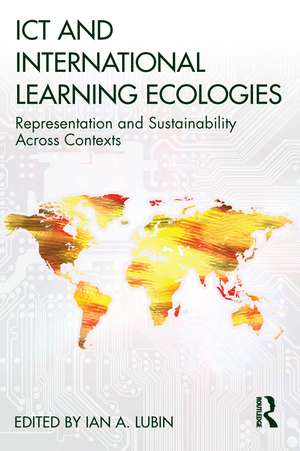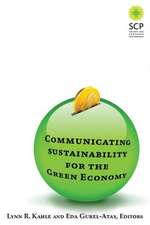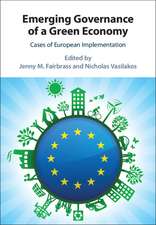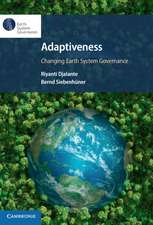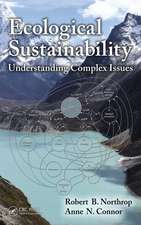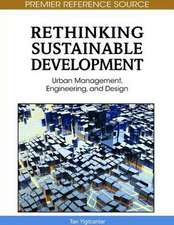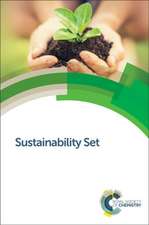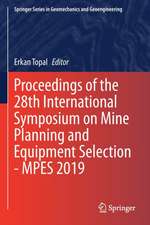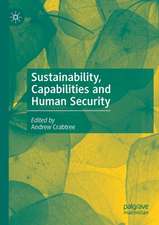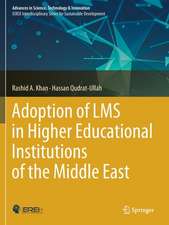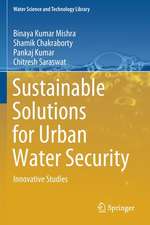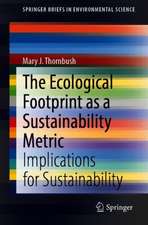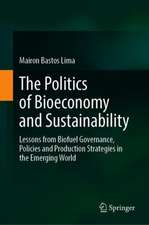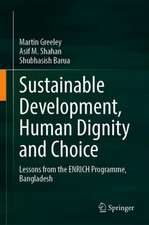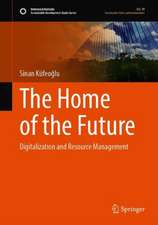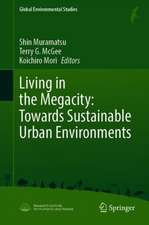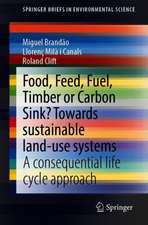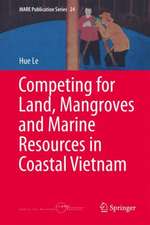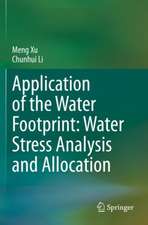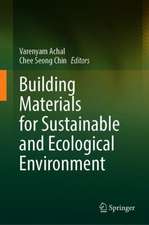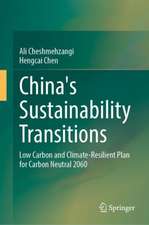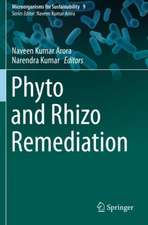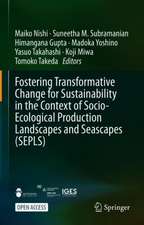ICT and International Learning Ecologies: Representation and Sustainability Across Contexts
Editat de Ian A. Lubinen Limba Engleză Paperback – 22 iun 2021
ICT and International Learning Ecologies addresses new ways to explore international, comparative, and cultural issues in education and technology. As today’s development orthodoxies push societies around the world to adopt imported information communication tools, new approaches are needed that integrate cultural responsiveness, autonomy, and sustainability into technology-enhanced learning. This edited collection conceptually and methodologically reframes the complexities of teaching and learning in historically marginalized communities around the world, where inequities are often exacerbated by one-size-fits-all programs. Graduate students and researchers of educational technology, international/comparative education, and sustainability education will be better prepared to lead information and communication technologies (ICT) implementation across a range of contexts and learner identities.
| Toate formatele și edițiile | Preț | Express |
|---|---|---|
| Paperback (1) | 370.55 lei 6-8 săpt. | |
| Taylor & Francis – 22 iun 2021 | 370.55 lei 6-8 săpt. | |
| Hardback (1) | 999.79 lei 6-8 săpt. | |
| Taylor & Francis – 22 iun 2021 | 999.79 lei 6-8 săpt. |
Preț: 370.55 lei
Nou
Puncte Express: 556
Preț estimativ în valută:
70.90€ • 74.23$ • 58.67£
70.90€ • 74.23$ • 58.67£
Carte tipărită la comandă
Livrare economică 05-19 aprilie
Preluare comenzi: 021 569.72.76
Specificații
ISBN-13: 9780367363673
ISBN-10: 0367363674
Pagini: 228
Ilustrații: 12
Dimensiuni: 152 x 229 x 12 mm
Greutate: 0.32 kg
Ediția:1
Editura: Taylor & Francis
Colecția Routledge
Locul publicării:Oxford, United Kingdom
ISBN-10: 0367363674
Pagini: 228
Ilustrații: 12
Dimensiuni: 152 x 229 x 12 mm
Greutate: 0.32 kg
Ediția:1
Editura: Taylor & Francis
Colecția Routledge
Locul publicării:Oxford, United Kingdom
Public țintă
PostgraduateCuprins
Part 1: Introduction and A Landscape of Literacies and Language: Frameworks, Models, and Illustrations 1. ICT and International Learning Ecologies: An Introduction 2. Talk, Smartphones, Notebooks, and Brown Paper 3. The Impact of Technology on a Multilingual World: Problems and Opportunities 4. A Methodology for Deploying a Digital Literacy Framework for Diverse Socioeconomic and Sector Contexts Part 2: Promoting Cultural Information and Knowledge 5. Making Culture Visible: A Primer for Culturally Grounded Design 6. Aesthetics and Power: Reforming Access to and the Inclusion of Cultural Content in ICT-Supported Education: A Peruvian Case 7. Embracing Indigenous Knowledge Systems in ICT-enabled Education Part 3: Reflections on Positionality, Sustainability, and Design 8. Reflections from the Boundary Spaces: Digitization of Intangible Cultural Heritage and the Co-design of ICT alongside Indigenous Communities in Namibia 9. On Being Proficient Enough to Do (No) Harm: Reflections on Mentoring Visiting Saudi Arabian K–12 Teachers
Notă biografică
Ian A. Lubin is an international learning design and technology consultant with experience in national and global educational issues. He is editor of the book ICT-Supported Innovations in Small Countries and Developing Regions: Perspectives and Recommendations for International Education, which received the Best Book Award from the Association for Educational Communications and Technology (AECT)'s Culture, Learning, and Technology Division.
Recenzii
"Can education move beyond the heritage of neo-colonialism and neoliberalism? ICT and International Learning Ecologies offers a radical vision of educational technology for a pluralistic world that cherishes human diversity."
—Andrew Feenberg, Professor in the School of Communication at Simon Fraser University, Canada
"ICT and International Learning Ecologies is like no other book that I have encountered. It shows how cutting-edge technologies can be harnessed in support of education that challenges Western hegemony and respects diversity around the world. It provides a novel vision of how education can, in turn, support cultural and environmental sustainability, building upon and learning from traditional, local, and indigenous ways of being. This is a timely contribution as the world struggles with climate change, environmental degradation, and growing inequality."
—Juha I. Uitto, Director of the Independent Evaluation Office at the Global Environment Facility, USA
"Settler colonialism and its logic of elimination continue to impact Indigenous people and disrupt our ways of knowing, being, and doing in the world. But we are still here. Indigenous peoples remain sceptical about our cultural knowledges and how new technologies have the ability to further marginalise our lives and our collectivities. Certainly, we have little evidence to support that any form of Western intervention will be beneficial to us. ICT and International Learning Ecologies brings forward the debates around Western knowledge and ICT and Indigenous participation. This is an important contribution to the discussions on technology and learning ecologies and how we ensure a more just world where Indigenous peoples are not further exploited and marginalised."
—Bronwyn Carlson, Professor and Head of the Department of Indigenous Studies at Macquarie University, Australia
—Andrew Feenberg, Professor in the School of Communication at Simon Fraser University, Canada
"ICT and International Learning Ecologies is like no other book that I have encountered. It shows how cutting-edge technologies can be harnessed in support of education that challenges Western hegemony and respects diversity around the world. It provides a novel vision of how education can, in turn, support cultural and environmental sustainability, building upon and learning from traditional, local, and indigenous ways of being. This is a timely contribution as the world struggles with climate change, environmental degradation, and growing inequality."
—Juha I. Uitto, Director of the Independent Evaluation Office at the Global Environment Facility, USA
"Settler colonialism and its logic of elimination continue to impact Indigenous people and disrupt our ways of knowing, being, and doing in the world. But we are still here. Indigenous peoples remain sceptical about our cultural knowledges and how new technologies have the ability to further marginalise our lives and our collectivities. Certainly, we have little evidence to support that any form of Western intervention will be beneficial to us. ICT and International Learning Ecologies brings forward the debates around Western knowledge and ICT and Indigenous participation. This is an important contribution to the discussions on technology and learning ecologies and how we ensure a more just world where Indigenous peoples are not further exploited and marginalised."
—Bronwyn Carlson, Professor and Head of the Department of Indigenous Studies at Macquarie University, Australia
Descriere
ICT and International Learning Ecologies addresses new ways to explore international, comparative, and cultural issues in education and technology.
